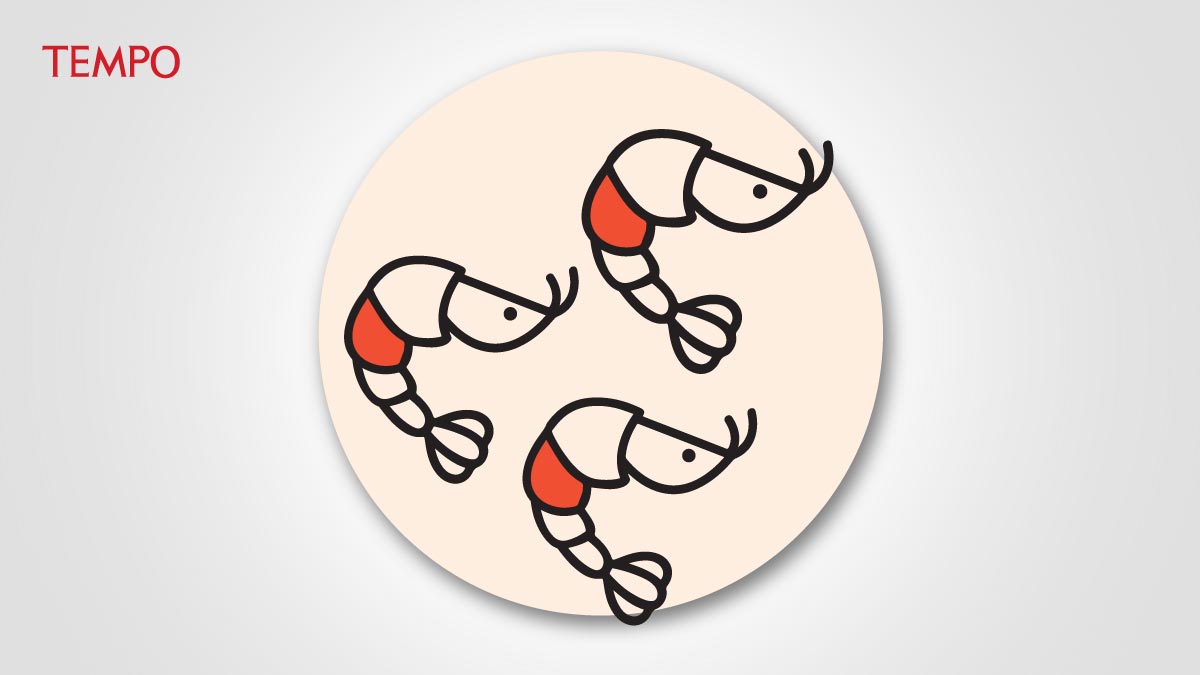A Valuable Lesson from the Donggala Ponds
Monday, March 10, 2025
The environmentally friendly shrimp aquaculture ponds in Donggala restore mangrove forests. This is an important lesson for the food sustainability project.
arsip tempo : 174494104391.

THE climate-friendly shrimp ponds in Donggala, Central Sulawesi, should be a lesson to the government on how to run a sustainability project without damaging the environment. At a time of large-scale expansion of aquaculture ponds that damage mangrove forests, projects like Climate Smart Shrimp Farming (CSSF) demonstrate a more sustainable approach.
Instead of leading to extensive clearing of mangrove forests like conventional agriculture projects, this project, developed by the Indonesian Conservation Foundation, integrates restoration of mangrove ecosystems into the agriculture scheme. With a total area of 10 hectares in Lalombi village, only 1.7 hectares are used for the shrimp farms. Of the remainder, 4.8 hectares are allocated for processing wastewater and 3.5 hectares for mangrove restoration.
Aquaculture projects such as CSSF not only reduce the negative impacts to the environment. If carried out on a wide scale, eco-friendly aquaculture could also increase the added value of Indonesian shrimp on global markets, which are becoming increasingly selective about the sustainable aspect. Therefore, an eco-friendly approach like this should become the new standard for the national fishery industry.
However, data from the Mangrove and Peatland Restoration Agency shows that the expansion of agriculture has destroyed 570,774 hectares of mangrove ecosystem, or 16.47 percent of the total national mangrove forest of 3.44 million hectares. Mangrove forests are an important natural defense against the impact of climate change. A number of studies have shown that mangroves are able to absorb 10 times more carbon than forests on land.
Ironically, the Indonesian government is actually pushing for the aggressive expansion of shrimp aquaculture without any consideration for preserving mangroves. Just look at the Maritime Affairs and Fisheries Ministry’s policy that set a target for shrimp production to increase from one million to two million tons. If the expansion of shrimp farms goes ahead using the old methods, it is not only mangrove ecosystems that would be threatened. Indonesia could fall further behind in the global trade.
The world is moving away from buying commodities produced in a way that ignores the environment. The United States, the main export destination for Indonesian shrimp, with a total value of US$1.42 billion in 1922, as well as the European Union, is increasingly reluctant to buy products that do not meet sustainable standards. The European Union has even implemented the European Union Deforestation Regulation, which bans the import of commodities that contribute to deforestation.
If the government does not immediately adopt an approach based on the environmental, social and governance aspects, shrimp and products of the Indonesian fisheries industry could face the same fate as palm oil and wood, which been the subject of boycotts in the global market.
Prabowo Subianto’s administration should immediately evaluate fisheries policies that damage the environment. He should do the same for projects like the food estate programs in Kalimantan, North Sumatra, and Papua. Projects that were initially claimed to be a solution to food security have turned into an ecological disaster and have failed to significantly increase food production.
If the Indonesian government is only interested in chasing growth and food security without considering sustainability, it is not only the environment that will be ruined. The future of the Indonesian economy is also under threat.











